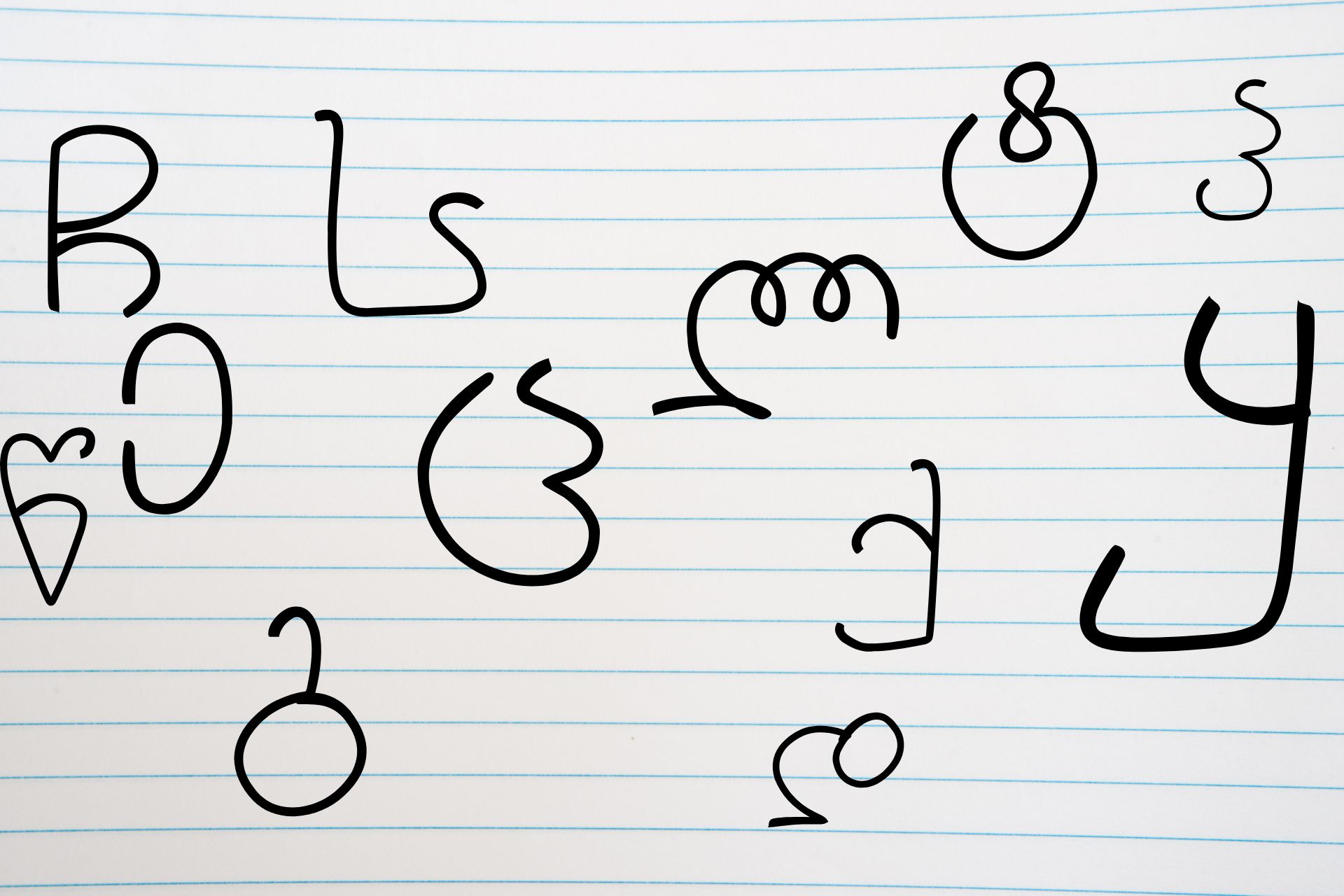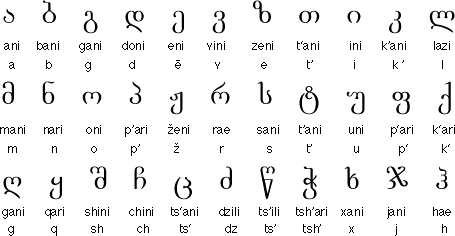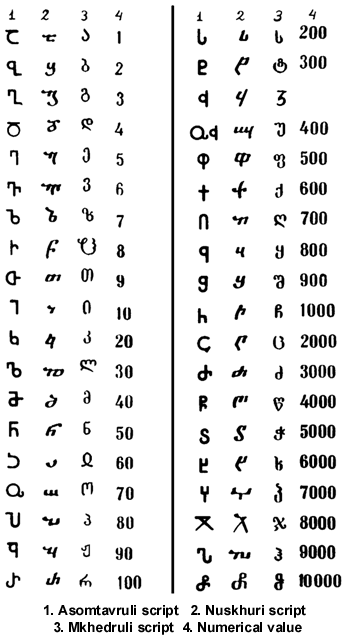Have you ever wanted to learn the Georgian language? One of the biggest challenges for expats upon moving to Georgia is the language.
In this article, we provide expat-recommended links and suggestions for mastering the Georgian alphabet and basic conversational phrases, as well as some interesting facts and history about this unique language.
Georgian, or “Kartuli” as it’s known by its 5.2 million speakers, is one of the oldest continuously-spoken languages on earth. Contrary to popular belief, Georgian language has no links with any other language families.
How to Study the Georgian Language
At first glance, learning Georgian can seem intimidating, as its unique alphabet not only features many letters which look similar to one another, but also some incredibly difficult sounds for westerners to pronounce (we’re looking at you, “ყ”).
However, there are many approachable ways to learn this unique alphabet, such as through free alphabet-game apps and youtube videos. And once you’ve got the Georgian alphabet down, you can read almost anything.
There are loads of free resources online for those who want to do a deeper dive into Georgian grammar, including the Georgian as a Foreign Language website or LingoHut, but for those just hoping to get a basic working grasp of the language, we’ve provided a mini phrase guide below.
Additionally, many expats prefer to learn in a live environment, as it conveys the intricacies in a more memorable and practical way. You can find Georgian language groups & events on Facebook, and a number of cafes host regular Georgian-language meetups, including the expat-run coworking space Lokal, which currently hosts weekly Georgian lessons.
Another effective way to learn Georgian is to get a native tutor, or a language-exchange partner, which you can easily find on Facebook. Couple that with your Georgian friends helping you along the way, and you’ll be speaking Georgian in no time!
Modern Georgian Alphabet
The modern Georgian alphabet, while intimidating at first glance due to the unconventional look of the letters, gets easier after one becomes familiar with their respective sounds. Fair warning, letters such as “ყ” and “წ” are perhaps the hardest to learn to pronounce, as they do not have counterparts in most other languages. Therefore, it’s best to learn these through listening to and imitating native speakers’ pronunciation.
How to Speak
Though Georgian is labeled as one of the hardest languages to learn, it can be quite easy once you get the hang of the alphabet. Unlike many other languages (such as English, German, French, Russian, etc.) Georgian is a completely phonetic language, so everything is pronounced exactly as it’s written, which makes things a lot easier after you pass the initial difficulty with the alphabet.
The Georgian language also has no gender, which simplifies things quite a bit. (The complicated verb system, however, more than makes up for that.) And fortunately, there are many foreign loanwords in Georgian, which become easily “Georgian-ified” simply by adding an “i” to the end.
For example: computer- კომპიუტერი (“computeri”)
YouTube has several highly recommended videos which will no doubt help you learn how to speak Georgian well. Pronunciation guides from peace corps volunteers and fellow expats are also great resources for improving your pronunciation.
Another expat-recommendation for those looking to improve their pronunciation is to watch one of your favorite movies or shows dubbed in Georgian, which you can easily find for free online. The more you listen to the language, the better you will be able to imitate its distinctive sounds. As Georgians say, “გამეორება ცოდნის დედაა!” (Repetition is the mother of learning!)
Mini Phrase Guide
Hello – გამარჯობა (gamarjoba)
Nice to meet you – სასიამოვნოა (sasiamovnoa)
Good morning! – დილა მშვიდობისა! (dila mschidobisa)
How are you? – როგორ ხარ? (rogor khar)
Thank you – მადლობა (madloba)
You’re welcome – არაფრის (arapris)
Yes* – ჰო/კი/კაი/დიახ (ho/ki/kai/diakh) *yes, there are 4 ways to say “yes” in Georgian.
No – არა (ara)
Excuse me – უკაცრავად (ukatsravad)
Sorry – ბოდიში (bodishi)
I don’t understand – ვერ გავიგე (ver gavige)
I don’t know Georgian – მე არ ვიცი ქართული (me ar vitsi kartuli)
Do you know English? – ინგლისური იცი? (inglisuri itsi)
How do you say __ in Georgian? – როგორ იქნება ქართულად __? (rogor ikneba kartulad __?)
Where is the toilet? – სად არის ტუალეტი? (sad aris tualeti)
Goodbye – ნახვამდის (nakhvamdis)
Turn Left/Turn Right – მარცხნივ/მარჯვნივ (marjvniv/martkshinv)
What do you want? – რა გინდათ? (ra gindat)
How much does it cost? – რა ღირს? (ra ghirs)
One minute – ერთი წუთით (erti tsutit)
It was very tasty – ძალიან გემრიელია (dzalian gemrelia)
A Brief Language History
The exact date of the creation of the Georgian script is unknown, but the 11th century Georgian historian Leonti Mroveli links its origin to King Parnavaz I of Iberia, who reigned from 302-237 BCE.
Georgian letters are exceptionally unique, and they can be compared to a form of art. Foreigners who first encounter the writing system often liken it to Middle-Eastern style-scripts (i.e., Arabic, Persian, Armenian, or Hebrew) or even Far-Eastern styles (i.e., Hindu, Chinese, Korean, or Thai) due to its exotic letter shapes.
Georgian script has changed its face three times during the developmental process and, consequently, there are three variants of letter drawing: Asomtavruli, Nuskhuri, and Mkhedruli. The first two are used together as upper and lower case in the writings of the Georgian Orthodox Church, and together are called Khutsuri – or “the priests’ alphabet”. The Nuskhuri script is the result of the development of Asomtavruli, and the Mkhedruli script is the evolution of the Nuskhuri script. There were 38 letters in the old Georgian alphabet, which has been reduced to 33 in the modern script. 5 letters were taken out as they stopped being used in mainstream speech and writing.
In Mkhedruli, the current script, there is no such thing as “upper-case” letters. Sometimes, for design purposes, you may notice a capital-like effect called “Mtavruli”, (which translates to “title” or “heading” in English). In this style, the letters are modified so that their vertical sizes are identical and they rest on the baseline with no descenders. These capital-like letters are often used in page headings, chapter titles, monumental inscriptions, and the like. However, in general, Georgian does not have capital letters for distinguishing names or proper nouns like English and many other languages do.
Dialects
We can safely agree that Georgia is a small country and that the language is mostly spoken only in Georgia. How many dialects could possibly exist in such a small region of the world? Two or three at most?
In fact, there are 18 distinct dialects spoken throughout Georgia, and they are classified according to their geographical locations. What is more, many of these Georgian dialects also come with their own sets of unique vocabulary and writing styles, which may be often confused as separate languages. While most of the dialects sound similar, almost all of them have a distinct feel to them by which locals are able to distinguish between them. Georgia’s rich linguistic diversity has made it a draw for philologists from all over the world.
Besides the “official” dialects, major population centers such as Tbilisi and Batumi have developed unique dialects due to them being large cultural melting pots where many from rural regions go to work and study.
Suggestions
Learning Georgian not only helps you to navigate life as an expat in Georgia more easily, but also offers you the opportunity to be a part of a niche language community throughout the world. You don’t have to be perfectly fluent – even a little Georgian will get you a long way, and help show locals that you care about Georgian culture and history. Sometimes just uttering a couple words in Georgian will very likely end up with you being invited to a supra (სუფრა – feast) as a guest of honor!
Without question, learning another language always enriches your life. Georgians have a beautiful saying, “იმდენი კაცი ხარ – რამდენი ენაც იცი” (There are as many versions of you, as the many languages you know.)
If you have any tips for learning Georgian that we haven’t mentioned, please let us know!
Get Our Full Georgia Expat Guide
Our free eBook covers the essentials of living in, or relocating to, Georgia. Our 100+ page guide includes:
- Accommodation and where to live in Georgia & Tbilisi.
- Visas & residency.
- Business, banking & tax.
- Everyday life: from social life to transport, internet, restaurants and much more.
Download your free copy of our eBook:


